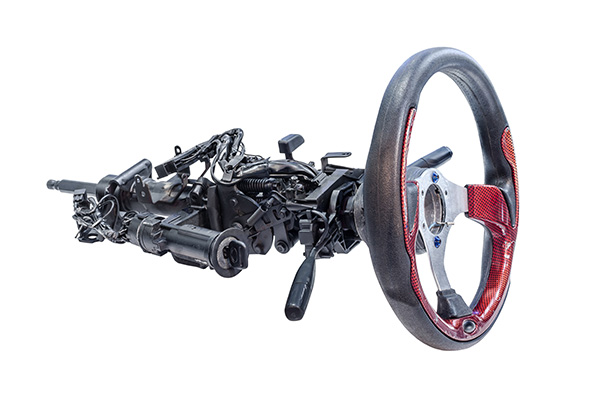Posted on 12/19/2025

A Lexus can feel so smooth and quiet that it is easy to forget how much work is happening under the hood. The engine starts instantly, the transmission shifts without drama, and there are no obvious shakes or rattles. That comfort can trick owners into thinking the car needs less attention than it really does, right up until a warning light or strange noise interrupts a normal day. Why Lexus Maintenance Feels Different From Other Cars Lexus builds a reputation on refinement. Many of the systems are designed to hide small issues from the driver, so minor misfires, dirty fluids, or worn components may not show themselves as clearly as they would in a rougher car. The downside is that by the time symptoms become obvious, the problem is often further along. The best approach is to treat that smoothness as something you have to protect. Basic maintenance, done on time, keeps the engine, transmission, and electronics working quietly in the background so they never distra ... read more
Posted on 11/28/2025

Honda vehicles are known for long service lives, yet a few patterns show up again and again. Recognizing the early signs helps you plan service before a small concern turns into a bigger bill. Here are the five issues we see most often and what you can do about them. 1. Oil Dilution in 1.5T Engines: What It Looks Like Some late-model Civics and CR-Vs with the 1.5-liter turbo can collect raw fuel in the engine oil, especially in cold weather or with short-trip driving. Symptoms include an oil level that slowly rises, a fuel smell on the dipstick, and a slight stumble on cold starts. Left alone, thin oil reduces protection for timing chains and turbo bearings. Shorter oil intervals, full warmups on longer drives, and software updates where applicable help. Our technicians verify with oil level checks, scan data, and a road test before recommending changes to your service rhythm. 2. Cold-Start Rattle from the VTC Actuator A brief rattle on the first ... read more
Posted on 10/31/2025

Track days are often won and lost long before the green flag. If your car dives under braking, pushes on turn-in, or snaps loose at the corner exit, the stopwatch will show it. Corner balancing and a true performance alignment transform that behavior. The goal is simple. Put more tire on the ground most of the time, and make the chassis respond the same way every lap. Why Corner Balance Before You Touch the Alignment Alignment sets where the wheels point and how they stand on the pavement. Corner balance sets how much load each tire carries at static ride height. If the diagonal, called cross weight, is off, the car will turn better one way than the other. You can add camber and toe until the printout looks perfect, yet the car still fights you in the braking zone. Get the weight right first, then lock in the alignment. On a proper set of scales, we measure total weight, front to rear distribution, and cross percentage. The target for most track cars is a cross valu ... read more
Posted on 9/26/2025

The steering rack is one of the most important parts of your vehicle’s power steering system. It converts the rotation of your steering wheel into side-to-side motion that turns your wheels. This component also controls how evenly and smoothly your car responds to your input while driving. When something goes wrong with the steering rack, it affects not just how the wheel feels in your hands but also how stable and predictable your car becomes. Steering rack problems often come on gradually. You may feel extra play in the steering wheel, notice strange noises when turning, or experience a general sense that your car is harder to keep under control. Signs Your Steering Rack May Be Failing A failing steering rack doesn’t always cause sudden failure. Instead, it sends subtle signals that something is off. Here are some of the most common warning signs: Difficulty turning the steering wheel, especially at low speeds Clunking or knocking noises when turning ... read more
Posted on 8/29/2025

When most drivers think about performance, they imagine speed, horsepower, or acceleration. While these qualities are important, true performance is about more than numbers. A car that’s powerful but breaks down often won’t serve you well. At Rix Automotive in Mason, OH, performance is always linked to reliability. That means making sure vehicles not only run at their best today but also stay dependable for years to come. The Importance of Preventive Maintenance One of the core principles of our RIX approach is preventive maintenance. Rather than waiting for parts to fail, the team focuses on regular inspections and scheduled service. Oil changes, fluid flushes, tire rotations, and brake checks might seem basic, but they are the foundation of reliable performance. Neglecting these services allows small issues, such as dirty fluids or uneven tire wear, to grow into bigger problems. Preventive maintenance ensures that vehicles remain effic ... read more